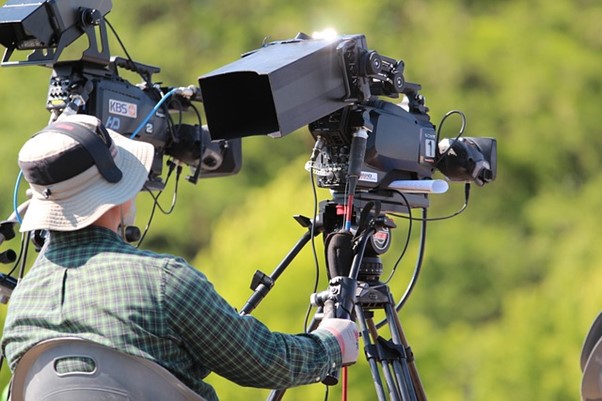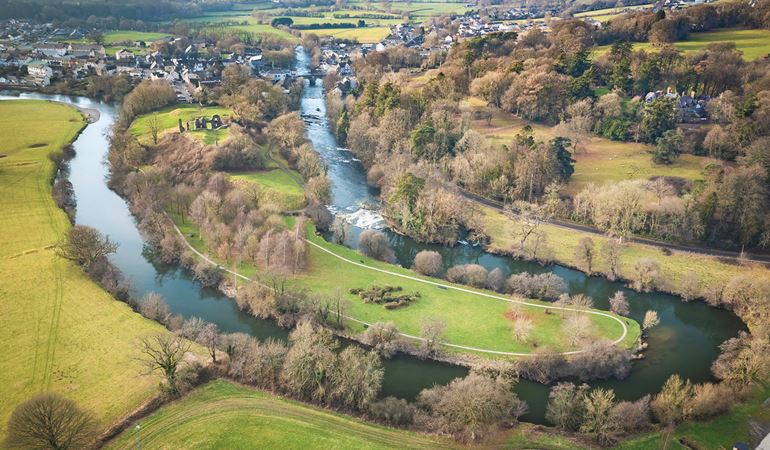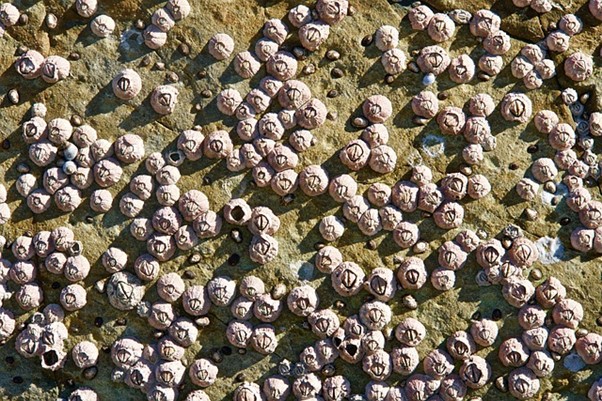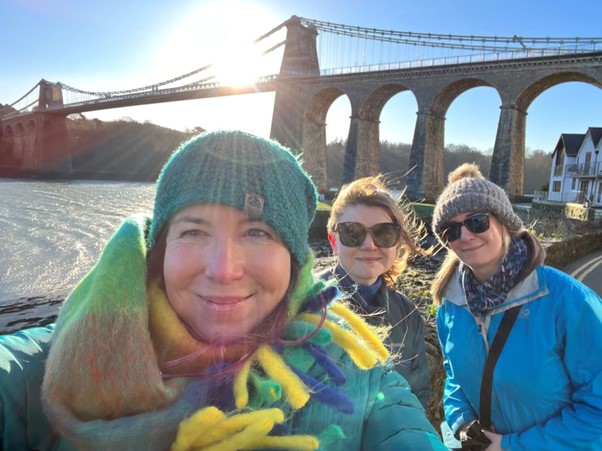Weeknotes 12/01/2024
These weeknotes are translated from Welsh to English by Bing Translate. We’ve added an * where there’s an obvious translation error, to avoid any confusion We’ve left the other translations as they stand so our readers can get a sense of what machine translation from English to Welsh can feel like
Welcome to our first Welsh edition… our week notes have been drafted in Welsh this time!!
We don’t translate our weeknotes…
At first, we *drove our notes to the translation team. But… here Garmon and the team challenged us about the need to prioritise our notes (which was often very long - because of all the work in the team!). There was more important work for them to *coax (hard to believe??), and with all the great jokes we were making, it was also quite a difficult thing to translate, and therefore time-consuming… so as an experiment here is drafting in Welsh and leaving the translation to Microsoft to see what we get…
Natural Resources Wales and the Digital team are keen to make Welsh a natural part of content design rather than bringing it in at the end of an English-only creative process.
We have conducted research interviews in Welsh about several projects over the years:
- flood warnings
- mapping portal to local authorities and national parks
- waste exemptions
- forestry
This research helps us to:
- respect the choice and language needs of our users
- understanding the natural terminology of our users
- reflecting the language of some of the audience’s work
Permission to do something on our land
There are a lot of things going on in the permissions project right now.
Research on *consumer views on obtaining filming permission
James has completed five research interviews to help understand our users’ experience when applying for permission to film on our land.
Three of the five interviews were in Welsh.

Like many other projects, users’ opinions suggest that our processes and working methods are the *bad in the cheese rather than the content of the website.
The two main things that emerged in the research were consumer unhappiness about :
- have to apply for permission 12 weeks before the filming date
- an expensive fee structure that favoured large productions at the expense of small programmes with less budget
We treat applying for filming permission in the same way as permission to hold an event on our land. But where events tend to plan around a definite date, the world of film and television production is much more fluid and last-minute.
People told James that the 12-week period was completely *unruly. The industry relies on freelancers and sometimes their contracts would be less than 12 weeks. It is common to have only a month’s time to prepare *venues.
So our service doesn’t match the reality of their world of work.
Every person also thinks our fee categories are too broad, e.g. charging the same fee to a crew of 5 as to a crew of 99. There will be a huge difference in the budgets of the two projects. *Venue managers build relationships with landowners and would expect to see a fee that reflects the production’s finances.
Some people talked about disregarding Natural Resources Wales for any work other than the most important *scenery. And everyone thought we were losing money by being rigid and losing the opportunity to show our land around the world.
Sam, Laura and Lucinda go through James’ notes to look at how we could use them to help meet the needs of users on our website.
Our Senior Director of Communications, Customer and Commerce will be joining us to watch one of the interviews and take notes next week.
One way in
For those who may not be as familiar with us about the permissions project, ‘one way in’ means turning six application forms into one!
We checked our prototype with the expert in the field this week. It was a very positive session and we are planning *duet writing sessions and working with translators (more on this approach below).
The aim is to publish this in January… and we are working hard to try to achieve this.
Permissions project future plan
Laura will be going on maternity leave at the end of February and will want a work plan in place for the project. We started drafting the plan this week (thankfully Sam has experience in this field and loves writing reports!).
The aim of the scheme is to:
- recording the research conclusions
- show all the work we have achieved so far
- identify opportunities for further work
Request to share good practice about writing *triads
We have been asked to film a case study about the method of writing a *trio.
We pioneered this approach to producing bilingual content back in 2022 while we were working on the forests section of our website.
Trio writing is a development of *duo writing, where a content designer works with an expert to understand:
- the audience
- user needs of the subject matter
- user tasks
- any actions the user must complete
Writing a trio brings in a translator from the very beginning. In this approach, the translator can contribute and advise as to what works well or not in Welsh.
Traditionally in the public sector the Welsh language is not part of the creative process. It comes at the end of a process after the content has been finished and authorised in English. The translator usually has no context for the piece of content, nor does it have the freedom to suggest creative changes. This in turn contributes to Welsh language content that can feel unnatural and long-winded.
Since pioneering this approach, it has received a great deal of attention:
- Heledd wrote a chapter in the *Writing Triad book published by the *Wales Digital Services Centre
- we gave a number of presentations organised by the Wales Centre for Digital Services
- James was invited to speak to Social Care Wales about this approach
Heledd also had a good chat with Rob Mills on the subject this week. He’s working with CDPS on a project on creating practical training and resources on this topic - there’s probably an opportunity to work collaboratively a bit more over the next month or two!
*QTS river review published
Sophie has completed an accessibility assessment on the Conservation Special Areas (*QTS) river water quality report.
This was a huge task as the report was over 100 pages and it went back and forth four times between her and the experts.
Many of the accessibility errors were due to the use of tables. We have the organisation template for putting data in tables. But perhaps the lesson is to question whether information has to be in a table at all?

Working methods lessons from organisations’ licence forms
There are a number of things in the pipeline regarding application forms for environmental permits for *establishments. Shaun has been working with the hydrogen production expert group to create a specific application form for hydrogen producing *organisations.
Alongside this, Shaun and Sam have been scrutinising the difficult work of swapping PDF organisations’ application forms with a Smart Survey digital form (Sam did the *cheering and raving while Shaun was idle over the Christmas holidays!).
Then at the end of the day, this Wednesday they learned that the OPRA (Operational Risk Assessment) approach to setting annual fees is changing on Monday 15 January. This is part of SRoC (Strategic Charging Review).
The charging method is extremely important for anyone applying for a licence or transferring or giving up a licence. As we were referring to the current method of charging fees throughout on the website, Shaun *prefaced the work of updates to reflect the change.
The obvious conclusion is that we could have handled the work much more efficiently had we been working at Agile. Instead of doing a series of separate things:
- make changes to the current method of charging
- submit a digital application form
- introducing a specific form for hydrogen production
- make further changes to the guidelines on the same web pages
we could have worked with the *Future Licensing and Regulation teams and launched all the changes to get to the SRoC timetable.
It’s not an individual or department’s fault that we’ve done the work separately in a way that makes previous work worthless almost immediately *bind. But if our internal structure allowed staff to be temporarily seconded to a project team, we could have done the work one time in a way that helps our user.
New content about *cockroach collecting announced
Sam has worked with the Dee Estuary *Cockpit Fishing team on a new application process for professional anglers. There are several design challenges to consider, including how we are:
- meet the needs of two different categories of users in one application: people who are on our system by applying to us before and new applicants
- help users give us every relevant detail so there’s no need to go after candidates looking for missing information
- give users the option to omit irrelevant sections of the application form, so that the process is as simple as possible
- help users understand what they have to do before applying

*Good time
There was an opportunity to show Toyah around the office, and make the most of the good weather by walking across the bridge to Menai Bridge.

The work of our other team members:
- James has met with Mary Galliers and Heather Crump to guide them through our Hotjar analytics tool
- Lucinda has met with Heledd and James to find out more about the background to the Flood Warning Information Service project. Lucinda has started a new role as a content designer helping this project
- Heledd, Alex and Paul joined a presentation from the Environment Agency (England) to hear about their major programme to transform their regulatory services. Many of the challenges were very familiar and ours – so we’re looking forward to hearing more, especially about any research and mapping services.
- A week of induction is planned for Toyah next week
- Alex and Owain attended a webinar about accessibility an using PDFs on websites